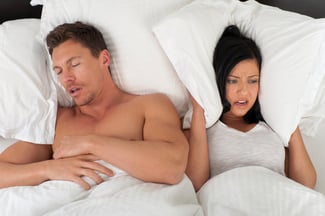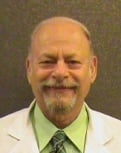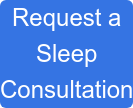Lowell Weiner DDS
Here are some common myths about sleep apnea that I have observed in my clinical practice:
1. MYTH: Overweight people are the only ones who have sleep apnea. 
FACT: Adults and children can have sleep apnea, even if they are at a normal weight. It often goes undiagnosed, especially in children who are underachievers. While the stereotype for sleep apnea seems to be overweight men, post menopausal women are as likely as men to have sleep apnea.
2. MYTH: People who have sleep apnea are lazy.
FACT: Sleep apnea can definitely affect your energy level, but most people with sleep apnea don’t even know they have it, so it certainly has nothing to do with work ethic. It is estimated that 80 million people in the U.S. are undiagnosed, and a lack of restorative sleep can be debilitating over time.
3. MYTH: You have to snore to have sleep apnea.
FACT: No, you can have sleep apnea and not snore, although an obstructed airway and loud snoring are common symptoms of sleep apnea.
4. MYTH: Heartburn or acid reflux is not related to sleep apnea.
FACT: Many people who have sleep apnea also have reflux because the throat is involved. If there is a weakness in the throat muscles it allows stomach acid to come up.
5. MYTH: I only snore when I sleep on my back; I am fine on my side, so I don’t worry about sleep apnea.
FACT: Snoring may be connected to sleep apnea, and it can start in childhood. While some lifestyle changes may help (avoiding alcohol, losing weight), a change in sleep position is not usually effective and when it is, you may ignore other symptoms and be put at a greater risk for life threatening issues. Have your health professional order a sleep study to accurately find out what is going on. A sleep study can be done at a sleep center or sometimes, at home. Today you can get a sleep study machine the size of a pack of cards sent to your house. It is evaluated by a sleep doctor by mail and insurance may cover it. Talk to your doctor.
6. MYTH: Everyone with sleep apnea needs a CPAP machine.
FACT: A CPAP, or continuous positive airway pressure, is a treatment that uses mild air pressure to keep the airways open. A mask covers the mouth or nose and mouth while sleeping and has a tube that gently forces air so that your airways remain open. A CPAP machine is effective for many people, but if you have mild to moderate sleep apnea, a simple, custom-fitted dental appliance may work without using a CPAP machine.
7. MYTH: The tongue doesn’t have anything to do with sleep.
FACT: Actually the tongue is usually a major component in obstructive sleep apnea and may not be helped with a CPAP, but may be helped with a dental appliance.
8. MYTH: Sleep apnea does not really affect me or my behavior.
FACT: Sleep apnea is potentially very serious for health, not just behavior. Major changes can occur over time with sleep apnea because of the lack of oxygen while sleeping. Panic attacks, depression, anxiety, difficulty concentrating and inability to handle stress may be symptoms related to sleep apnea and poor sleep quality. Sleep apnea also increases risk for other health problems like heart disease, stroke and diabetes. The risk of an industrial accident or a car crash from falling asleep cannot be underestimated.
If you do not wake up feeling refreshed, have daytime drowsiness, fatigue or brain fog, or if your partner notices you snore or seem to stop breathing temporarily while sleeping, please consult your health professional. The dentist, working with your physician, may be able to help solve sleep apnea or snoring issues with a custom-fitted dental appliance.
Why take a chance on something as common and serious as sleep apnea? Come in for an evaluation.
 Lowell Weiner D.D.S., F.A.G.D, is a biological dentist at National Integrated Health Associates, a leading integrative medical and dental center serving Washington, D.C., Maryland and Virginia. His areas of interest are sleep apnea, toxic teeth, chronic sinus problems, and non-surgical treatment of TMJ. Dr. Weiner treats dental issues that affect sleep quality such as sleep apnea, snoring and TMJ.
Lowell Weiner D.D.S., F.A.G.D, is a biological dentist at National Integrated Health Associates, a leading integrative medical and dental center serving Washington, D.C., Maryland and Virginia. His areas of interest are sleep apnea, toxic teeth, chronic sinus problems, and non-surgical treatment of TMJ. Dr. Weiner treats dental issues that affect sleep quality such as sleep apnea, snoring and TMJ.
.png?width=305&height=132&name=NIHAlogoBLUE_3_transparent%20(2).png)

